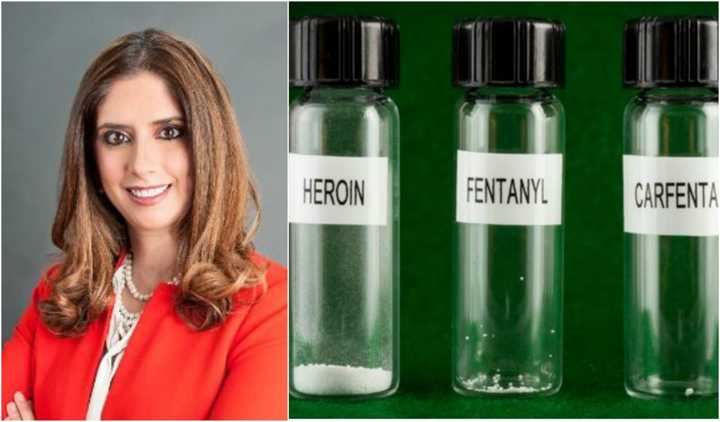What's even scarier, Soliman said, is that the synthetic opioid — among the most dangerous drugs in the world — is seeping into cocaine and heroin across the U.S. Even worse, even the most experienced users often don't know it.
"It can kill someone accidentally," said Soliman, the chief academic officer/consultant of the Accreditation Council for Medical Affairs. "So when it's dispensed, you have to be double and triple-checking it. It's highly regulated.
"It numbs your entire body — that's why it can be so addictive."
Fentanyl was intended for the treatment of people dying of cancer and is 50 to 100 times stronger than morphine, the pharmacist said.
To put things in perspective: Oxycodone takes 10 to 15 minutes for immediate release to work. Fentanyl can work in less than three minutes if it's injected into a vein, leaving very little room for error, Soliman said.
There are many ways of taking fentanyl — you can smoke it it, snort it or even suck on it in the form of a lollipop.
Fentanyl patches are meant to be worn on your arm for 48 to 78 hours, but abusers have started taking the gel out of them to smoke it, ingesting it within minutes, according to the pharmacist.
Because the drug significantly slows respiration, it could quickly kill the user, Soliman said. The risk of fatality increases when mixed with cocaine or other drugs, she said.
"Opioids in the pill form have more legroom, but fentanyl does not," Soliman said. "And that's the concern."
Take Prince, for example. Pills seized inside his compound were labeled as hydrocodone but were actually fentanyl — "the drug that killed the singer."
Earlier this month, an Ohio police officer overdosed on fentanyl that had gotten on his shirt while making an arrest.
More locally, drug dealers in Edgewater were caught with 10 ounces of the designer opioid furanyl fentanyl, and last week, police said men from Lodi and Teaneck had 4½ pounds of fentanyl shipped to them through the U.S. mail.
Fentanyl is not helping the opioid epidemic -- it's adding to it, Soliman said.
"The best way to stop addiction is awareness," she said.
"Be aware before it can happen to your or a family."
Suzanne Rabi Soliman received her doctorate in pharmacy from the University of Illinois at Chicago, and was clinical faculty and associate/assistant dean at two colleges of pharmacy. She opened U.S. Pharmacy Lab in Northvale in 2015 to provide personalized attention to patients.
Click here to follow Daily Voice Hackensack and receive free news updates.
